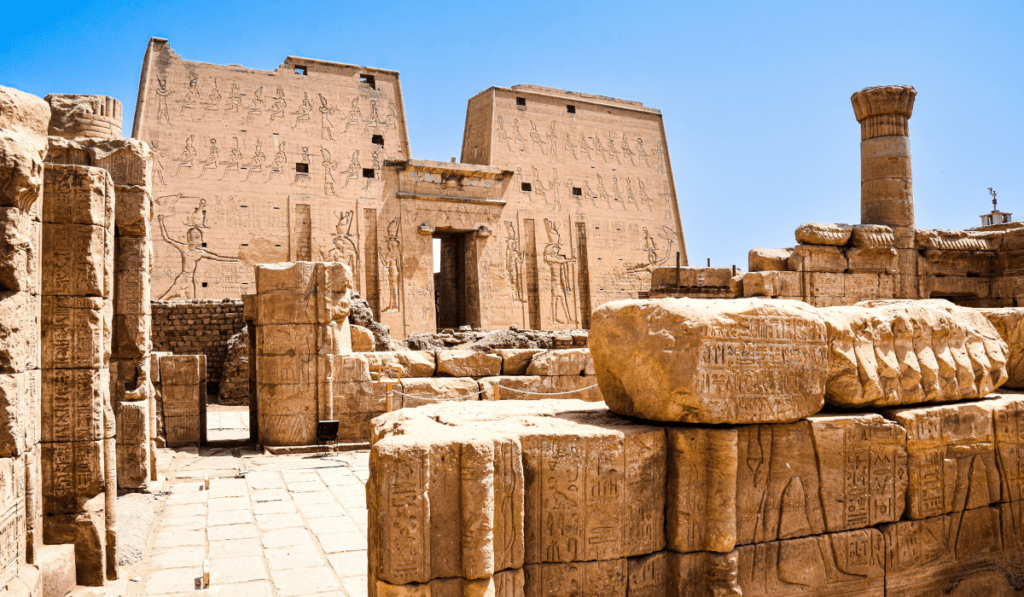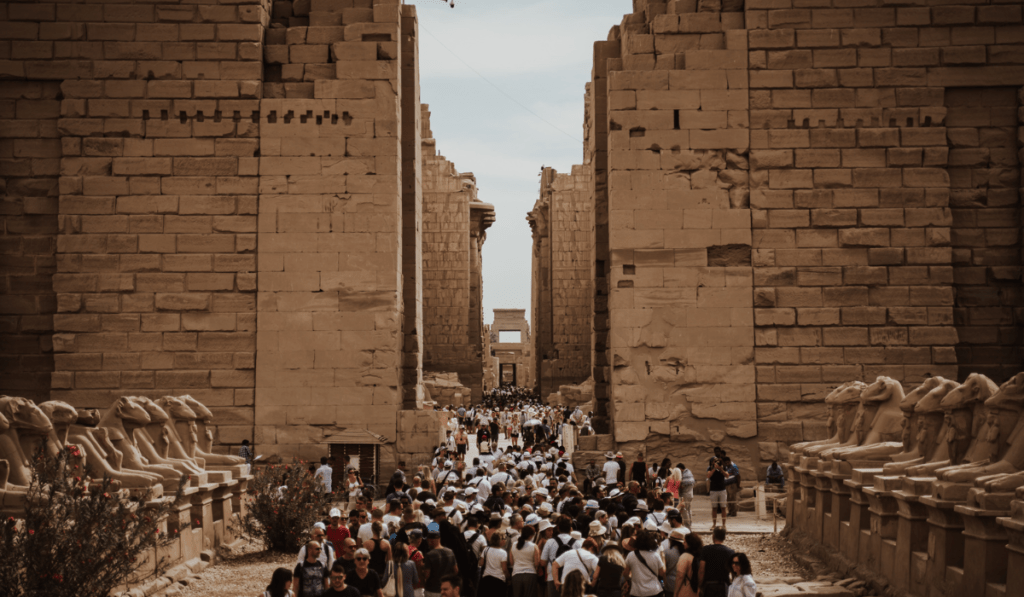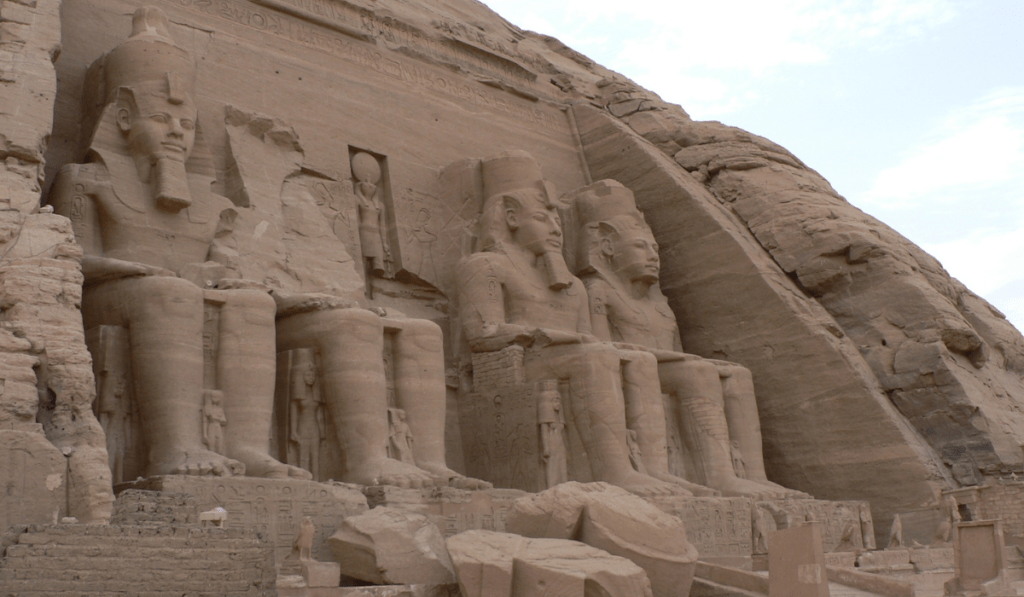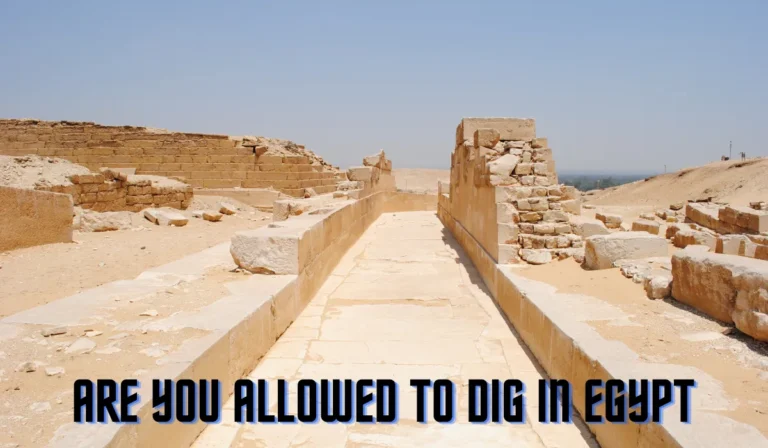Exploring the ancient wonders of Egypt has always been a fascination for adventurers, historians, and archaeology enthusiasts. However, the question that often arises is are you allowed to dig in Egypt and excavate in Egypt to uncover the treasures of the pharaohs, the pyramids, the mummies, and the tombs.
So the answer is YES, you are allowed to dig in egypt but with some restrictions.
In this article, we will delve into the regulations, permits, and guidelines required for archaeological exploration in Egypt. We will explore the process of obtaining permits, the importance of preserving cultural heritage, and provide insight into the archaeological wonders buried beneath the sands of this captivating country.

Are You Allowed to Dig in Egypt? – Yes | But Digging in Egypt is not a simple or easy task.
As an aspiring archaeologist, adventure seeker, or history enthusiast, Egypt presents an irresistible allure. The cradle of ancient civilizations, this captivating country houses remarkable treasures from the past, begging to be unearthed. However, before grabbing a shovel and delving into the sand, it is crucial to understand the regulations, permits, and guidelines governing archaeological exploration in Egypt.
You may think that digging in Egypt is a simple adventure: you just grab a shovel and go to the nearest desert. But you are far from the truth. Digging in Egypt is not a simple or easy task. It is a complex and challenging activity that requires permission, skill, equipment, gear and patience. You cannot just dig anywhere you want in Egypt, as you might damage or destroy the cultural heritage and history of this country, as well as violate the laws and rights of the people who own the land. If you are caught digging illegally, you can face arrest and prosecution. Digging in Egypt can also be very dangerous, as you might encounter traps, curses, or angry locals.
Is Digging Permitted in Egypt ?
You are not allowed to dig in Egypt without a scientific mission and a permit from the authorities. But by following the above stated steps carefully, you will be able to enjoy digging in Egypt responsibly. You will be able to explore the ancient wonders of this country without harming or offending anyone or anything and contributing to the scientific knowledge and preservation of Egypt’s cultural heritage without breaking any laws or rules. You will be able to have fun and excitement without risking your life or health.
How to Dig in Egypt Safely and Legally ?
If you are interested in digging in Egypt, you need to do some research first. You need to find out how to get permission to dig in Egypt, what are the rules and regulations that govern archaeological excavations in this country, and what are the best practices and methods for digging in Egypt safely and ethically. Here are some steps you can follow:
Understanding the Regulations and Permits:
Egypt boasts an intricate history and a rich cultural heritage, necessitating strict measures for preservation. The Egyptian Antiquities Law, implemented to safeguard the country’s valuable heritage, regulates all archaeological activities within Egyptian borders.
Obtaining the Necessary Permits:
To conduct archaeological excavation in Egypt, one must secure permits from the Egyptian Ministry of Antiquities. These permits are categorized based on the type and scale of excavation. Whether you are an individual researcher, part of an academic institution, or representing a professional archaeological organization, obtaining the required permits is essential.
Archaeological Excavation Process in Egypt:
Collaborating with Authorities and Institutions:
Archaeological excavations in Egypt are often a collaborative effort between local authorities and academic institutions. It is imperative to liaise with the Supreme Council of Antiquities (SCA) or the Ministry of Antiquities to obtain the necessary approvals and support for your dig.
Identifying Potential Dig Sites:
To embark on an archaeological dig in Egypt, one must identify potential excavation sites. Extensive research, coupled with the guidance of local experts and historians, aids in prioritizing significant locations. Unearthing the hidden secrets of ancient civilizations requires a thorough understanding of historical contexts and archeological potential.
Preparing for the Excavation:
Planning the Dig Process:
Before commencing the excavation, meticulous planning is crucial. Gathering relevant historical data, consulting experts, and formulating a comprehensive excavation strategy enables effective outcomes.
Assembling the Team:
Archaeological digs require a skilled and diverse team of professionals. Archaeologists, conservators, surveyors, and laborers work together to ensure a successful excavation. Collaborating with local experts provides invaluable knowledge about the region’s history and cultural practices.
Acquiring Required Tools and Equipment:
Excavation necessitates specialized tools such as trowels, brushes, sieves, and measuring instruments. Coordinating with local authorities and institutions can aid in obtaining the necessary equipment.
Hope you are getting some insights and liking this blog of “Are You Allowed to Dig in Egypt?”. Please read the below for deep insights.
Excavation Techniques and Practices:
Stratigraphy and Recording:
Excavations in Egypt employ stratigraphic techniques to unravel the layers of history buried beneath the surface. Each layer holds significant information, and careful recording of findings ensures accurate interpretation.
Digging and Uncovering:
The process of unearthing artifacts is meticulous and requires precision. Archaeologists must exercise caution to avoid damaging delicate objects as they excavate and uncover ancient remains.
Preservation of Unearthed Artifacts:
Preserving artifacts is of paramount importance. Proper conservation techniques and storage conditions ensure the longevity of these treasures. Artifacts should be handled with care, and experts should be consulted for restoration when necessary.
Documentation and Cataloging:
Thorough documentation and cataloging of excavated artifacts enable future research and study. Accurate records of the excavation process, site mapping, and precise descriptions aid in comprehending the historical context.

Challenges and Considerations:
Preservation vs. Exploration:
Balancing the preservation of cultural heritage and the desire for archaeological exploration presents a significant challenge. Egypt must protect its historical treasures while allowing for scientific research and discovery.
Limitations and Restrictions:
Certain areas in Egypt are restricted due to their cultural and historical significance. Obtaining permits for excavation within these restricted zones requires additional approvals and extensive justification.
Working with Local Authorities and Communities:
Collaboration with local authorities and communities fosters a respectful and inclusive approach to excavations. Engaging with the local population ensures a shared understanding of the significance of archaeological projects and encourages community involvement and support.
The Significance of Archaeological Discoveries in Egypt:
Understanding Ancient Civilizations:
Archaeological discoveries provide invaluable insights into the lives, beliefs, and practices of ancient civilizations. By unearthing their remains, we can better comprehend our shared human history.
Contributions to Historical Knowledge:
Egyptian archaeological discoveries have contributed significantly to historical knowledge and understanding. These findings enrich academic research, challenge preconceived notions, and promote a broader understanding of human cultures.
Tourism and Economic Impact:
The fascination with ancient Egypt attracts millions of tourists each year. Archaeological sites and discoveries serve as a significant source of revenue for the country, driving its economy and tourism industry.
How To Dig In Egypt Legally and Safely ?
If you are interested in digging in Egypt, you need to do some research first. You need to find out how to get permission to dig in Egypt, what are the rules and regulations that govern archaeological excavations in this country, and what are the best practices and methods for digging in Egypt safely and ethically. Here are some steps you can follow:

READ MORE – 1 week or Months | How Long Is Dig Season In Egypt – Know Details
Are You Authorized to Explore in Egypt | Digging In Egypt Is Worth It
Yes you are Authorized to Explore in Egypt and In my opinion, digging in Egypt is worth it. It is a unique and unforgettable experience that can enrich your life and broaden your horizons. It is a way of connecting with the past and learning from it. It is a way of discovering new things and sharing them with others. It is a way of fulfilling your curiosity and passion.

Conclusion: Digging in Egypt is Possible
Hope you got the answer for this query “Are You Allowed to Dig in Egypt?”
In conclusion, digging in Egypt is possible and enjoyable. You just need to know what you are doing and how to do it. You need to get permission, follow the rules, and respect the culture. You need to prepare well, work hard, and have fun. If you do that, you can dig in Egypt legally and safely, and enjoy the rewards and benefits of doing so.
FREQUENTLY ASKED QUESTIONS
-
Can anyone dig in Egypt?
No, not anyone can dig in Egypt. According to the website of University College London excavating in Egypt requires a permit from the Supreme Council of Antiquities (SCA), which is the government body responsible for the protection and management of Egypt’s cultural heritage.
-
How do archaeologists get permission to dig in Egypt?
Archaeologists who want to dig in Egypt have to apply for a permit from the SCA at least six months before their planned start date. They have to submit a detailed proposal that includes the objectives, methods, budget, schedule, and expected outcomes of their project. They also have to provide evidence of their academic qualifications, previous experience, and institutional affiliation.
-
Is it OK to dig up mummies?
No, it is not OK to dig up mummies. Mummies are considered sacred and valuable by Egyptians, as they are the remains of their ancestors and a source of historical and cultural information.
-
Is it legal to own Egyptian artifacts?
No, it is not legal to own Egyptian artifacts. According to the Egyptian Antiquities Law of 1983, all antiquities found in Egypt belong to the state and are considered national property.
-
Are there any restrictions on who can obtain permits for archaeological excavation in Egypt?
Only academic institutions and organizations can obtain permits for archaeological excavation in Egypt.
-
Can individuals conduct archaeological digs in Egypt, or is it limited to academic institutions and organizations?
Individuals cannot conduct archaeological digs in Egypt.
-
How long does it typically take to obtain the necessary permits for excavation in Egypt?
Permits required for excavation in Egypt are normally obtained within 1-2 years.
-
Are there any specific guidelines regarding the handling and transportation of excavated artifacts?
There are special rules for handling and moving discovered artefacts, such as wearing gloves and face protection and recording all discoveries.
-
What are some of the most significant archaeological discoveries made in Egypt in recent years?
The Golden Mask of Tutankhamun, the Queen Nefertari Tomb, and the 5,000-year-old wooden boat are some of the most important archaeological finds unearthed in Egypt in recent years.
ALSO READ –
Earn Good Dollars – Who Pays Archaeologists in Egypt
Share to help
